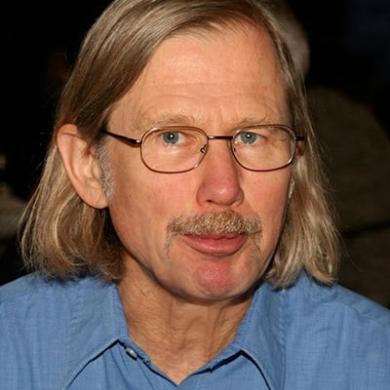
The Work Goes On
Charles Brown on pay gaps, unions, productivity, and the firing of the BLS Commissioner
Charles Brown, professor of economics and research professor of the Survey Research Center, emeritus at the University of Michigan, discusses his upbringing in Ohio, his academic studies at Boston College and Harvard, his work on labor economics, and his time as director of the Panel Survey of Income Dynamics (PSID).
In this episode, Brown and Ashenfelter discuss:
- Brown’s childhood in Cleveland, Ohio, and how his parents insisted that he receive a solid education, first at Cleveland Saint Ignatius High School and then at Boston College. “...my mom and dad were really conscious of the fact that their lives would've been better if dad in particular had had college. So, they were really gung-ho [that] I was going to go to college.”
- His undergraduate work at Boston College with two remarkable professors, Ed Kane and Burt Malkiel. “[Ed]…had the uncanny ability to spot errors in work that I would've sworn was absolutely perfect. And it kind of either straightened me out or scared me straight for life.”
- Brown’s postgraduate work at Harvard and his dissertation, which tested Yoram Ben-Porath’s model of optimal human capital accumulation.
- Brown’s two influential papers, one in the Quarterly Journal of Economics on compensating differentials, and the other, co-authored by Jim Medoff, on unions and productivity. “I tell the graduate students that your best ideas typically come when you're showering and shaving, not when you're kind of sitting in the library thinking about something.”
- His time at the Institute for Social Research as both PSID director and Health and Retirement Study Co-PI. “The time being director of PSID was really uncharacteristic. What's much more characteristic is for me to play bass in bands where other people are the horn players out front.”
- His thoughts on the president firing the commissioner of the Bureau of Labor Statistics. “I wasn't terribly surprised by the president's reaction. I'm depressed that no one in the administration has basically stuck up for the commissioner and explained that the president is just off base on this.”
Charles Brown earned his Ph.D. from Harvard University in 1974. He is professor of economics and research professor of the Survey Research Center, emeritus at the University of Michigan. He is renowned for his work in labor economics and industrial relations, and especially for his work on measurement in labor markets. "The Work Goes On"—a podcast produced by Princeton's Industrial Relations Section (IR Section)—is an oral history of industrial relations and labor economics hosted by Princeton's Orley Ashenfelter.
-
Brown, C., & Hamermesh, D. S. (2019). Wages and Hours Laws: What Do We Know? What Can Be Done? RSF: The Russell Sage Foundation Journal of the Social Sciences, 5(5), 68-87.
-
Moffitt, R., Schoeni, R. F., Brown, C., Chase-Lansdale, P., Couper, M. P., & Diez-Roux, A. (2015). Assessing the Need for a New Nationally Representative Household Panel Survey in the United States. Journal of Economic and Social Measurement, 40(1-4), 1-26.
-
Brown, C., National Bureau of Economic Research, and James L. Medoff. Firm Age and Wages. Cambridge, Mass: National Bureau of Economic Research, 2001.
-
Brown, C., & Medoff, J. (1978). Trade Unions in the Production Process. Journal of Political Economy, 86(3), 355-378.
